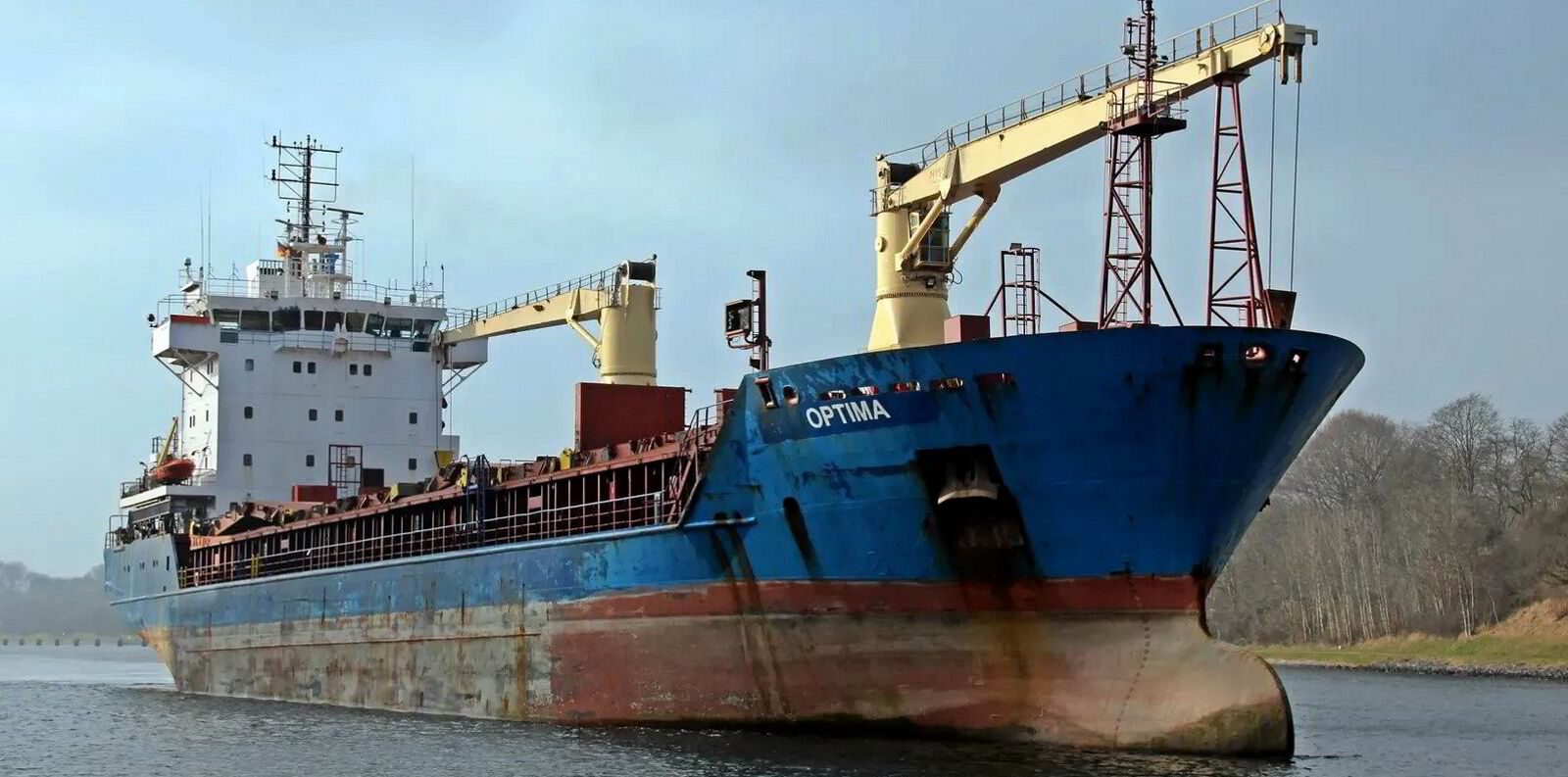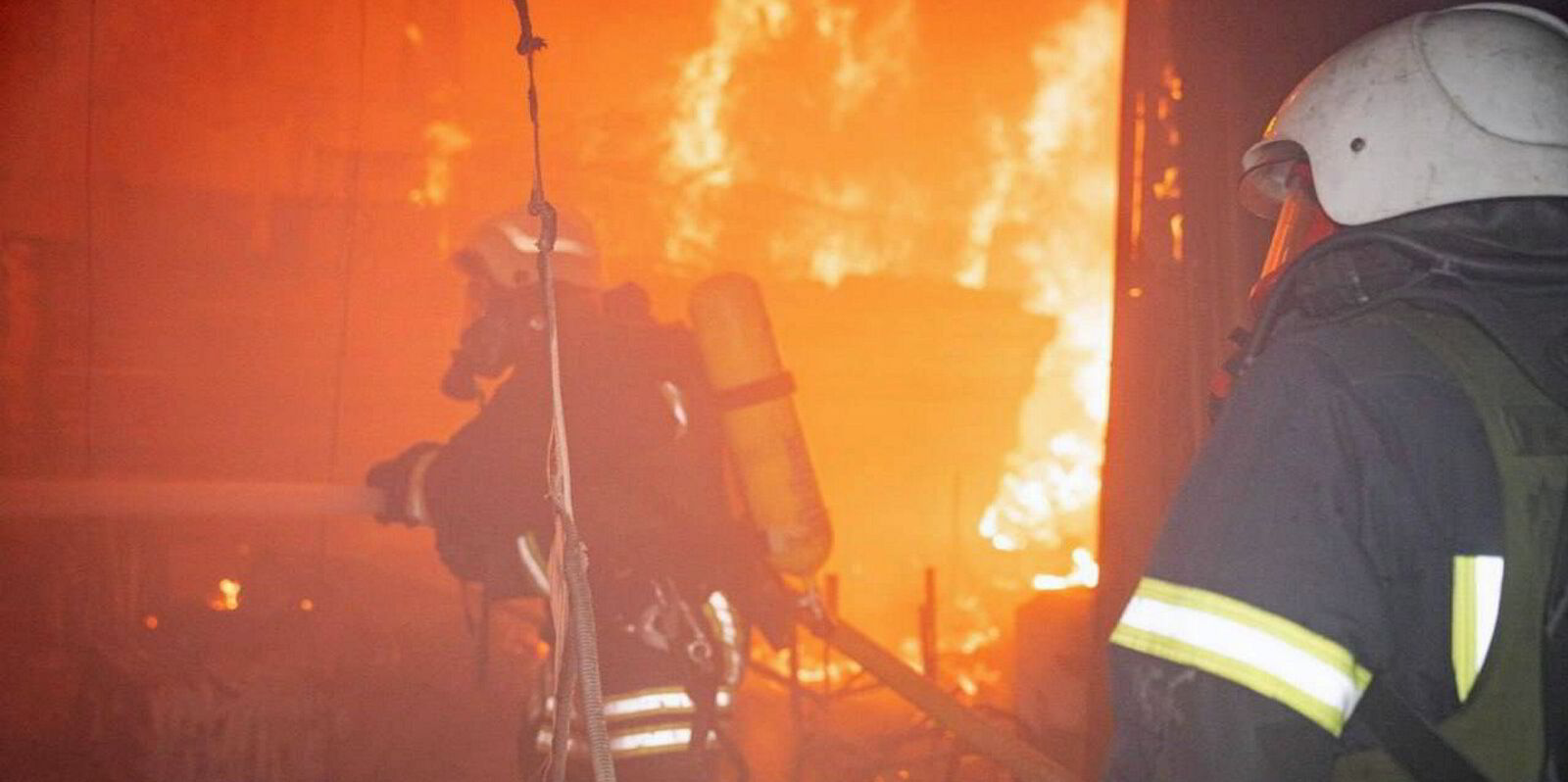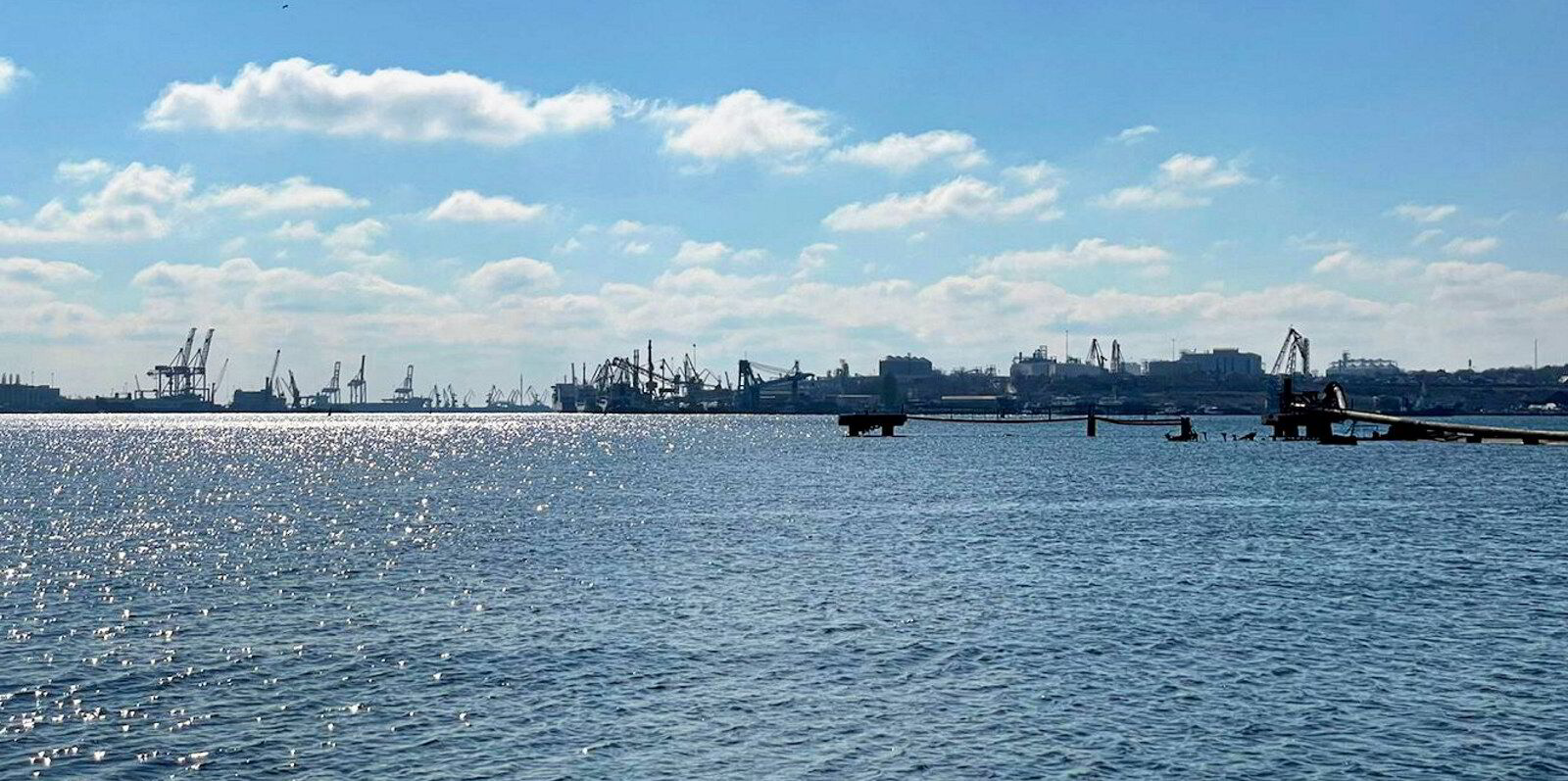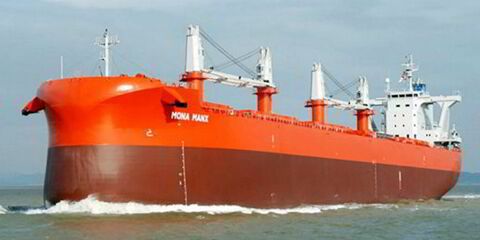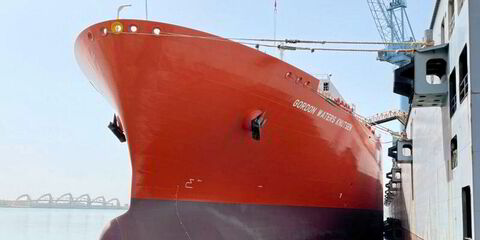Kyiv authorities reported a second missile strike within 48 hours on a cargo ship moored at a port in the Greater Odesa region leaving one Ukrainian port worker dead and up to five seafarers injured.
The 5,800-dwt Optima (built 2008) was attacked late on Monday in what increasingly looks like a concerted Russian effort to crack down on Ukraine’s seaborne trade.
The Palau-flagged ship had come in for loading to Odesa earlier on 7 October, Ukraine Deputy Prime Minister Oleksiy Kuleba wrote on his Telegram channel.
Odesa region governor Oleh Kiper confirmed the incident on his Telegram channel saying: “The target of the aggressor was port infrastructure.”
According to the Kiper, the blast killed a 60-year-old Ukrainian who worked for a private cargo company.
Five non-Ukrainian seafarers are receiving medical care. One has light injuries but those of the remaining four are “of medium severity”, Kiper wrote.
The Optima is listed under the management of Usta Shipping Co — a Greece-based company listed with another trio of similar vessels.
Vessel tracking platforms show the Optima at Odesa’s Novolog Terminal.
‘Deliberate’ strike
The attack on the Optima is the second such strike reported by Russian forces in the past 48 hours.
As TradeWinds has reported, early on Sunday an Iskander M-missile hit the 6,273-dwt general cargo vessel Paresa (built 1992) in the port of Yuzhny.
Paresa managers AK Shipping told TradeWinds that the strike caused “considerable damage” to the vessel but no injuries among the crew.
Both AK Shipping and Usta Shipping are listed with an address in Piraeus but the ships are not necessarily owned by Greek interests.
AK Shipping is linked to Middle Eastern interests and the names of the vessels managed by Usta Shipping are suggesting the same.
The Russian defence ministry has made no statements about the attack on the Optima yet, but it did acknowledge the attack on the Paresa, claiming the vessel was carrying war material into Ukraine.
However, AK Shipping executives vehemently denied the Russian claim, telling TradeWinds the ship arrived ballasting at Yuzhny on 1 October to load a cargo of corn.
Ukrainian officials are also claiming the two ships were carrying commercial cargo, with Kyiv being convinced that the strikes against them represent a deliberate attempt by Moscow to disrupt Ukraine’s maritime trade.
Kuleba said: “This is a purposeful practice of intimidation and obstruction of the work of the Ukrainian maritime corridor.”
Ukraine’s seaborne trade had been continuing surprisingly smoothly since the country managed to establish its own maritime corridor in August last year, after Russia pulled out of a similar UN-led scheme.
More than 2,500 voyages have been recorded out of the ports of Odesa, Yuzhny/Pivdennyi and Chornomorsk since.
During this period, Russia has been frequently attacking Ukrainian port infrastructure in the three terminals, plus other Ukrainian terminals by the Danube. However, direct attacks on ships had been very rare.
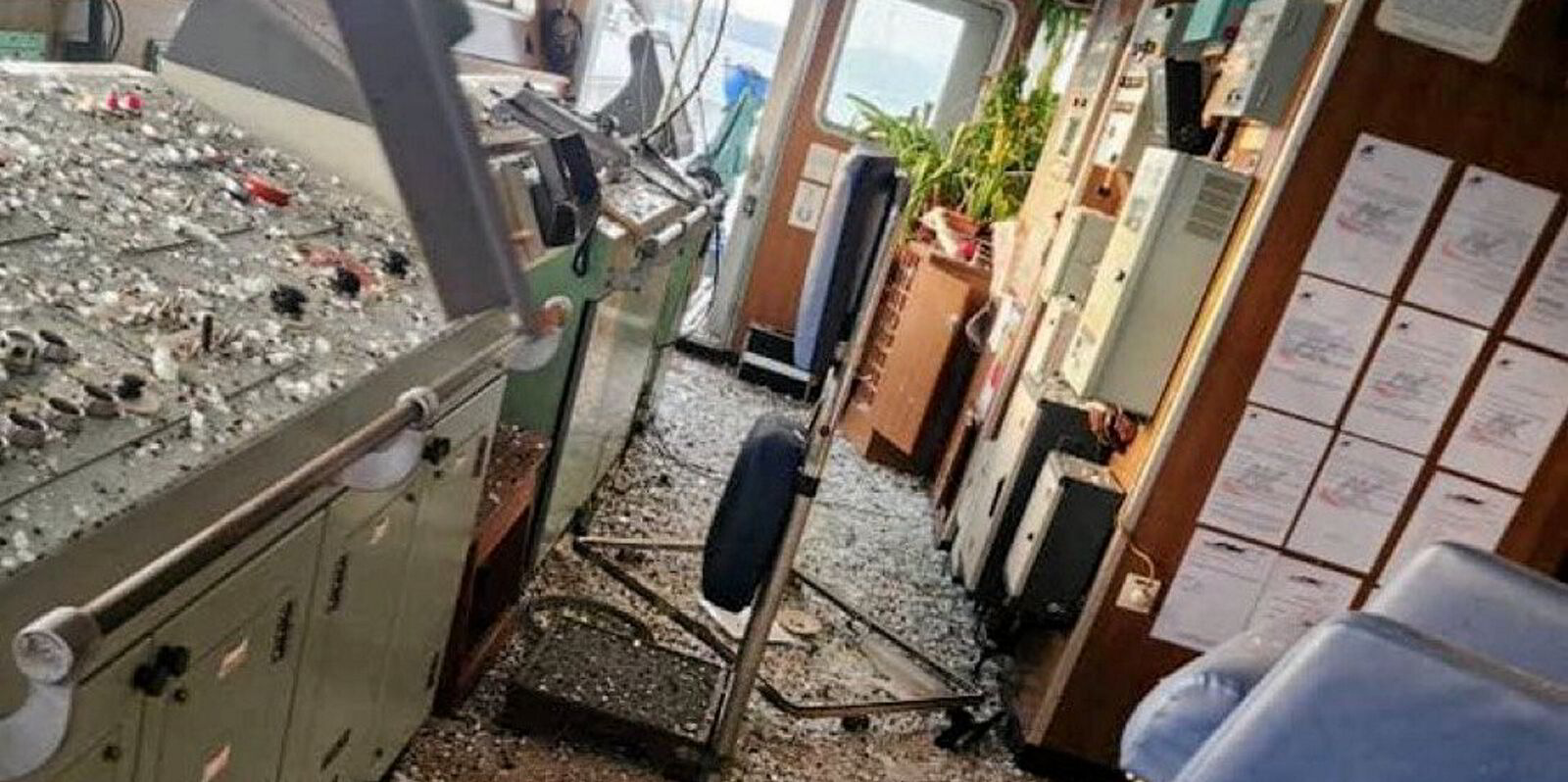
Before the two incidents this weekend, just three vessels are known to have been hit in the corridor as a direct or indirect result of Russian strikes.
The Ukrainian port worker’s death on Monday is the first ship-related fatality since November 2023, when a pilot was killed after a missile flew into the Greek-managed, 91,900-dwt KMax Ruler (built 2009).
However, direct strikes against ships have become frequent since last month.
On 21 September, the Russian defence ministry said that a dry cargo ship carrying arms into Ukraine was damaged as part of an air assault on military warehouses in Odesa.
The identity of the ship hit has not been officially disclosed but S&P Global’s International Ships Register indicates that the 6,300-dwt Golden Lion (built 2006), which was in the vicinity, was the victim, suffered non-serious damage as a result of hostilities on 20 September.
On 11 September, a Russian a missile hit the 27,300-dwt Aya (built 1997) — an Egypt-bound grain ship that had just left Ukrainian waters — in the open sea.
Russia has officially claimed ignorance of the Aya attack but Ukraine and the UK are blaming Moscow for the incident.
In a briefing released last week, the UK Ministry of Defence said the strike on the Aya probably resulted from poor, hasty targeting by a panicked Russian pilot using unreliable munitions.
